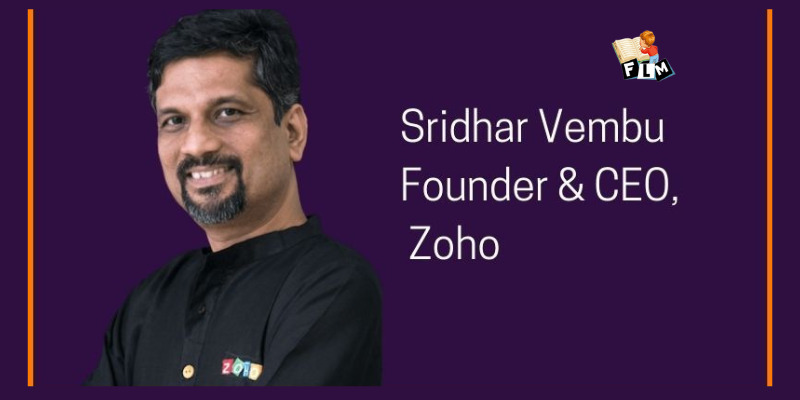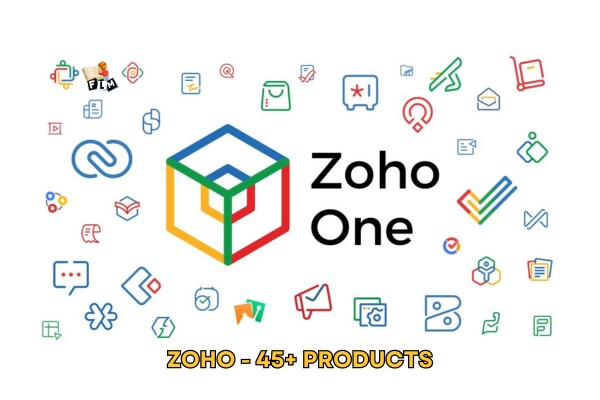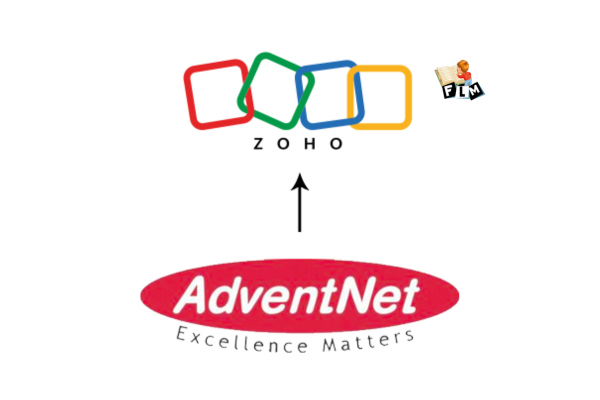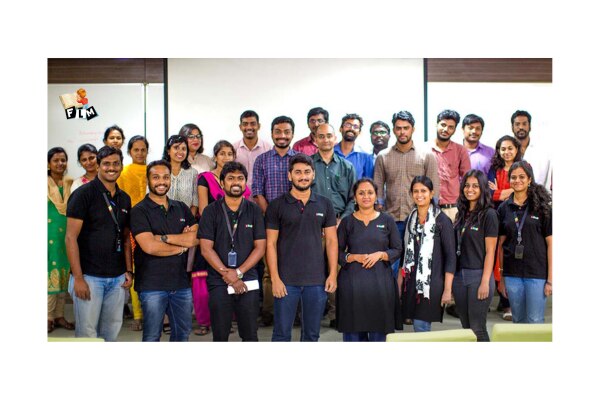- Now a days Building a Global Tech Empire without Investors is not an easy task The story of Zoho Corporation is one of resilience, innovation, and vision—an eternal saga mirroring the journey of a company inspiring millions of entrepreneurs and tech enthusiasts around the globe in its wake
- That journey—from a quaint city in Chennai, India, to global leader status in cloud-based software solutions—is a case study in what can be pulled off by an unyielding resolution, strategic thinking, and adherence to core values.
The Genesis: Modest Beginnings
- In 1996, Sridhar Vembu teamed with his co-founder, Tony Thomas, to create AdventNet, Inc., later to become Zoho Corporation. AdventNet started as a network management company for telecommunications companies.
- The internet was in its nascent stages and India was just starting to position itself as an IT services provider to the world. In this context, the competition was most cut throat and Indian companies mainly comprised of IT companies offering outsourcing services in the late 1990s. But Sridhar Vembu had some different vision
- Even though he had graduated from IIT Madras and held a PhD from Princeton University, Sridhar Vembu set up his company in India, in Chennai specifically, away from all the glitter of Silicon Valley. This decision was on the principle that talent is omnipresent; on that ground alone, a great company can be built outside the traditional centers for technology.
- The early years were challenging. The market for AdventNet was small, and its resources were very limited; growth was slow but sure. They hung on because, deep inside, they were committed to quality and customer satisfaction. As they built a reputation of delivering strong and reliable solutions, this gradually earned them a loyal customer base.
Transformation and Rebranding: The Birth of Zoho
- By the mid-2000s technology was changing at a very fast pace. Cloud computing was rapidly changing how companies were conducting business. Sridhar Vembu saw this as the right time to revolve the company from only network management to SaaS. This strategic move came to be known as Zoho’s birth.

The company released its first hosted product in 2005:
- Zoho Writer, an online word processor. It put the company on a big collision course with then-dominant Microsoft Word. But Zoho Writer had one difference: it featured real-time collaborative editing over the internet. That was truly remarkable at the time, setting the stage for what Zoho has become: a suite of cloud-based applications.
- 2009 also marked the rebranding from AdventNet to Zoho Corporation; this was not a simple change in names but marked the transformation of the company into the SaaS giant that Zoho is today. Zoho named after the market of “small office/home office” they initially went after, but that proved to be misleading.
The Zoho Way: Bootstrapping and Independence
- Perhaps the most astonishing thing about the Zoho journey is that it has remained a privately held, bootstrapped company. Most tech companies live on venture capital money, but Zoho has grown organically through the reinvestment of the majority of its profits into the business. This has kept the company sovereign and true to its values.
- Sridhar Vembu has always made much of the fact that he disdained the “growth at all costs” thinking that pervades most of the technology world. Instead, he had to ask people to indulge in what he terms “sustainable enterprise” growth driven by the needs of their customers and not investor demands.
- This philosophy is mirrored in the long-term commitment that Zoho has to research and development. The company plows an extensive amount of its revenue back into R&D to constantly innovate and increase its menu of products.
Broaden the Product Lines: A Suite to Fit Every Business Need
- During this time, Zoho has become a mother to a multitude of applications that, by all means, indeed make it one of the most comprehensive SaaS providers in the world.
- A vast number of applications incorporated within one suite—more than 45 in number—meet diversified business needs, starting from CRM, finance, HR, marketing, and many others. This can be considered one of the strongest cards that the company holds.

- A case in point is Zoho CRM, which was released in 2006 and quickly went on to become one of its flagship products. It presents businesses with a robust platform for management of customer relationships and helping them speed up the sales process to facilitate superior customer service.
- Its success gave birth to a beehive of other products, like Zoho Books for keeping accounts, Zoho People for human resource management, Zoho Projects for managing projects, and Zoho Desk as a customer support solution.
- Integration among its many applications is one of the outstanding features that give Zoho an edge over most of its competitors. A customer finds itself in a position to manage all its business processes under the Zoho suite without the necessity of having to consult several vendors to get the job done.
- This approach not only makes operations more manageable but invites major cost efficiencies as well, thereby making Zoho a favorite among small and medium companies across the world.
Accent on Financial Outlay as Well as Access
- Zoho has been on a mission to democratize technology. Sridhar Vembu shares the view that software should be within the financial reach of a majority of businesses, particularly small and medium-sized entities, and not the exclusive reserve of big corporations.
- This translates into a pricing strategy geared toward giving maximum worth but at only a fraction of the cost of the competition.
- For instance, Zoho CRM offers a free trial with some basic features to enable startups and small businesses with low budgets to afford it. So, upgrading with the growth of business becomes necessary.
- Upgrading is also made affordable, given that its priced plans accommodate even the price-sensitive business class, startups included. This way, Zoho has been able to tap into a big percentage of diverse customers who serve it in over 180 countries.

The “Zoho University” and Social Impact
- Zoho’s commitment to societal impact goes beyond merely making software affordable. In 2005, the company established Zoho University, now known as Zoho Schools of Learning, which is intended to eradicate the skills gap in the technology industry.
- The Zoho Schools are, in a way, a departure from the granularity of practical individual, hands-on learning possible in regular colleges. There is a promise of a job with Zoho on completion, and most of their students come from the underprivileged section of society.
- The impact of the facilitation also bridges the gap in years of education; this same facilitation replenishes the talent pipeline for Zoho. Today, Zoho has a substantial amount of its workforce as graduates from Zoho Schools, which goes on to reflect the company’s culture in terms of growing and retaining talent in-house.
A Global Company with Deep Local Roots
- Zoho has now become a global company, doing business in many different countries, but it remains strongly rooted in its Indian origins. The company remains headquartered in Chennai, and it has established offices in smaller towns and rural areas all over India.
- It was all courtesy of Sridhar Vembu’s vision of decentralizing tech jobs and spreading economic opportunity to the poorer parts of his country.
- In 2020, just before the company went for its initial public offering, Vembu himself moved to a small village in Tamil Nadu and continues to run the company from there.
- Zoho has been a true living example of practicing rural development and an evangelism of remote working since long before the COVID-19 crisis woke the world up with the myriad of possibilities that remote working presents.
- A good part of Zoho’s success so far is solely because of the customer-facing strategy. It has always placed customer satisfaction before anything else—certainly not before aggressive marketing.
- Apart from word-of-mouth referrals, Zoho invests prudently in many areas. Their focus remains on organically growing a suite of portfolio products centered on customer needs.
- And it has proven to be an extraordinarily effective strategy. Today, over 80 million users—not just small businesses and startups but even large enterprises—reside in the Zoho ecosystem.
- Add in the need to build trust with customers, and it didn’t hurt that Zoho had always taken a hard line on privacy: not selling user data, no advertising.
RESILIENCE AGAINST ADVERSITY
- The rapid pace of technological change within the industry, competition from industry giants such as Microsoft and Google, and economic downturns all contribute to a difficult road ahead filled with resilience tests for the company.
- This is not a special case as concerns any successful company; Zoho is no exception. But the very strong foundation of Zoho—based on independence, innovation, and long-term vision—keeps it afloat amidst these storms.
- While most companies were downsizing employees during the financial turmoil in 2008, Zoho was increasing its investment in R&D and developing its product portfolio.
- During COVID-19, even when most of the companies were running moderate campaigns or showing mere support on social platforms, Zoho took a step further by providing free software to any small business that needs help at this time.

The Way Ahead for Innovation and Sustainability
- Looking ahead, Zoho continued on its innovation and sustainability trajectory. In new technologies, such as AI and blockchain, the company will have a very strong pipe of diversification opportunities, among many other ways of unleashing more value for its customers.
- It remained committed to sustainability objectives that are ecological by running its data centers on renewable energy, lowering its carbon footprint.
- Sridhar Vembu has always wanted to make Zoho increasingly an employee-owned company so that its success is a collective phenomenon, not just for the founders.
- Therefore, here is Zoho, like many other steps, increasingly trying to push the envelope of inclusivity toward its bigger mission: to bring positive change in the world.
Conclusion: A Legacy of Inspiration
Yet, the Zoho story remains one of the most powerful case examples of what a combination of vision, perseverance, and faithful dedication to core values can bring about from its small garage in Chennai to one of the leaders in business software on the cloud around the world, it is an example and an inspiration to entrepreneurs worldwide.
These values, when coupled with Sridhar Vembu’s decision to build a global technology company from India with no venture capital and to keep it relentlessly focused on affordability, accessibility, and social impact, makes Zoho truly unique and admirable in the technology world. And as Zoho innovates and grows, its story will inspire so many more, allowing them to dream and build truly sustaining businesses.
Written by – Meghana
